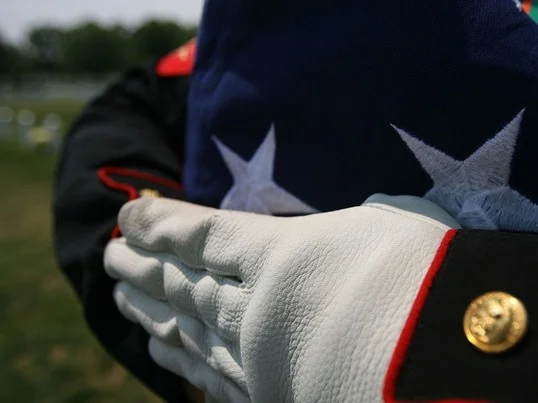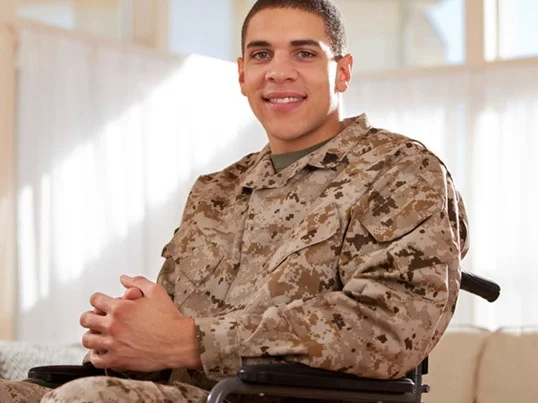Are You Aware of the VA Rating for Sleep Apnea? Unlocking the Benefits for Maine Veterans
Living with sleep apnea is a challenging journey, with new obstacles to overcome every day. The struggle to get a good night’s sleep not only impacts your physical well-being but also hinders your ability to perform daily tasks efficiently.
But for veterans dealing with sleep apnea caused by their military service or service-related injuries, there is a ray of hope in the disability benefits provided by the Department of Veterans Affairs (VA). In this guide, we will discuss the VA rating for sleep apnea, giving veterans like you the knowledge you need to know about your rights and how to access the support you are entitled to.
Sleep apnea is a common sleep disorder where breathing stops or becomes shallow during sleep. This can lead to poor sleep quality and various symptoms such as daytime sleepiness, snoring, and fatigue. For veterans applying for VA disability benefits, the VA rating for sleep apnea is crucial in the claims process.
Quick Summary:
- Definition of Sleep Apnea: Sleep apnea involves breathing interruptions during sleep, resulting in low oxygen levels. It affects sleep quality and overall health. Symptoms include snoring, gasping, and daytime sleepiness.
- Types of Sleep Apnea: Obstructive Sleep Apnea, Central Sleep Apnea (CSA) and Complex Sleep Apnea Syndrome
- Recognizing Symptoms: Sleep apnea signs include loud snoring, and gasping at night. Symptoms of daytime sleepiness, headaches, and irritability.
- VA ratings for sleep apnea can range from 0% to 100% based on how severe it is and how it affects daily life. Ratings reflect levels of symptoms and required treatments, with associated compensation rates.
- VA Compensation Rates: Monthly rates for sleep apnea range from $508.05 to $3,621.95. Rates vary by disability rating. These rates acknowledge the impact of sleep apnea on veterans’ lives.
- Diagnostic Tests for Sleep Apnea: VA uses tests like polysomnography and home sleep apnea testing for diagnosis. These tests evaluate the severity of sleep apnea. These tests help determine treatment plans and compensation eligibility.
- Establishing Service Connection: Veterans must show the connection between sleep apnea and military service for benefits. This requires meeting specific requirements and gathering evidence, often necessitating legal assistance.
What Is Sleep Apnea?
Sleep apnea is a condition where your breathing repeatedly stops and starts as you sleep. This leads to low oxygen levels in your body. These interruptions happen many times during the night, affecting your sleep and health. People with sleep apnea may have symptoms like snoring, gasping, and sleepiness.
Types of Sleep Apnea
There are two primary types of sleep apnea:
Obstructive Sleep Apnea (OSA)
Obstructive sleep apnea is the most common form of sleep apnea, making up about 85% of cases. The muscles in the throat relax too much during sleep. This blocks the airway partially or completely. This blockage causes pauses in breathing, known as apneas. It also leads to shallow breathing, known as hypopneas. OSA is linked to loud snoring, gasping, or choking sounds while asleep. It can cause daytime exhaustion, morning headaches, and trouble focusing. Risk factors for OSA: obesity, older age, male gender, family history, anatomical abnormalities.
Central Sleep Apnea (CSA)
Central sleep apnea is not as common as OSA. It happens when the brain fails to send signals or control the muscles to breathe during sleep. CSA differs from OSA. CSA happens when your brain doesn’t send signals for breathing during sleep. Individuals with CSA may have pauses in breathing without snoring or choking sounds. CSA is linked to medical conditions like heart failure, stroke, and certain medications. It can also be associated with brainstem lesions. Symptoms of CSA may include disrupted sleep, frequent awakenings, and daytime sleepiness.
Complex Sleep Apnea Syndrome
Complex sleep apnea syndrome is a mix of obstructive and central sleep apnea. Also called treatment-emergent central sleep apnea. Individuals with OSA can develop central sleep apnea after starting CPAP therapy. Treating complex sleep apnea syndrome is hard. It needs a team approach to deal with both types of the disorder.
Commons Symptoms of Sleep Apnea
Recognizing the signs of sleep apnea is the first step in getting the right medical help. Common signs include:
- Snoring loudly.
- Gasping or choking while sleeping.
- Feeling very sleepy during the day,
- having morning headaches.
- Being irritable or having mood swings.
- Finding it hard to concentrate or remember.
If you or someone you care about has these signs, it’s important to see a doctor for more checks. A complete evaluation might need a sleep study to diagnose sleep apnea correctly and know what is your VA rating for sleep apnea.
What Is The Current VA Rating For Sleep Apnea?
A veteran with sleep apnea can get different levels of VA rating benefits: 0%, 30%, 50%, or 100%.
- 0% Sleep Apnea Rating: asymptomatic, but with documented sleep disorder breathing.
- 30% Sleep Apnea Rating: persistent daytime hypersomnolence (excessive daytime sleepiness).
- 50% of Sleep Apnea Rating: means needing a machine to help with breathing, like a CPAP device.
- 100% Sleep Apnea Rating: respiratory failure with carbon dioxide retention. It may cause cor pulmonale or require tracheostomy for treatment.
Even if you have a 0% VA rating for sleep apnea, you might still qualify for other benefits, like VA healthcare. An experienced veteran disability benefits attorney can help you determine eligibility. You may be entitled to benefits for sleep apnea.
What is the VA Compensation for Sleep Apnea?
VA pays compensation to veterans based on how bad their sleep apnea is. The rates are effective from December 1, 2022. A single veteran’s obstructive sleep apnea claim compensation monthly varies by rating.
- 30% Disability Rating: $508.05/month
- 50% Disability Rating: $1,041.82/month
- 100% Disability Rating: $3,621.95/month.
These VA ratings for sleep apnea recognize how sleep apnea affects veterans’ lives. They provide money based on how serious the condition is.
How Does The VA Test For Sleep Apnea?
The VA uses various tests to check for sleep apnea. The goal is to measure how serious it is and how it affects veterans’ health. These methods for monitoring your sleep include:
Sleep Lab Testing (Polysomnography)
Polysomnography is considered the gold standard for diagnosing sleep apnea. The veteran is watched all night in a sleep lab. Their breathing, heart rate, oxygen levels, and brain activity are checked. This test helps doctors find breathing problems during sleep and see how bad they are.
Home Sleep Apnea Testing
Home Sleep Apnea Testing (HSAT) may be chosen by the VA instead of polysomnography. It is an easier and cheaper way to test for sleep apnea. HSAT uses portable devices to check your breathing and oxygen levels while you sleep at home. HSAT may not give as much information as polysomnography. It can still help diagnose moderate to severe sleep apnea.
The VA uses both tests and doctor visits to check for sleep apnea. Healthcare providers look at symptoms and risks during these evaluations. Veterans receive medical history reviews. They also undergo physical exams including symptom evaluation. The clinical results support the test outcomes and help with treatment choices.
Establishing Service Connection for Sleep Apnea
To secure VA disability benefits for sleep apnea, you need to show how it’s linked to your time in the military. Many veterans have sleep apnea symptoms during their military service. However, they may struggle to get the proof needed to link it to their time in the military.
The Three Requirements for Service Connection
To qualify for VA disability benefits, veterans must meet three key requirements:
- Veterans must prove they have sleep apnea which affects their daily lives and a sleep study must confirm this and document it.
- In-Service Injury or Illness: Evidence of injury or illness during military service. This serves as the basis for developing current disability.
- Veterans need to link current disability to in-service injury or illness. It’s crucial to establish a clear nexus between the conditions.
Navigating VA disability claims for sleep apnea needs specific knowledge of VA laws. A veterans benefits lawyer can help you gather proof and build a strong case for getting benefits.
Demystifying VA Rating for Sleep Apnea: Your Path to Understanding
Are you struggling to understand the intricacies of the VA rating for sleep apnea? You’re not alone. Navigating VA benefits can be hard, especially with sleep apnea evaluations. But fear not, as clarity is within reach.
At Jackson & MacNichol Law Offices, we know how hard it can be for veterans to get compensation for conditions like sleep apnea. With our experience and knowledge of VA law, we’re here to help you understand how VA rates sleep apnea.
Our team can help you find out your VA rating for sleep apnea. We gather evidence and navigate the VA’s complex system for you. If you’re applying for the first time or trying to challenge a decision, we promise to support your rights. Our goal is to make sure you get the benefits you’re entitled to.
Ready to take the next step? Don’t wait any longer to seek the assistance you need. Reach out to our team at Jackson & MacNichol Law Offices today. We’re here to help you every step of the way to make sure you get the benefits you deserve.
Contact us today to get a free consultation and let’s embark on this journey together. Your peace of mind is our priority.



